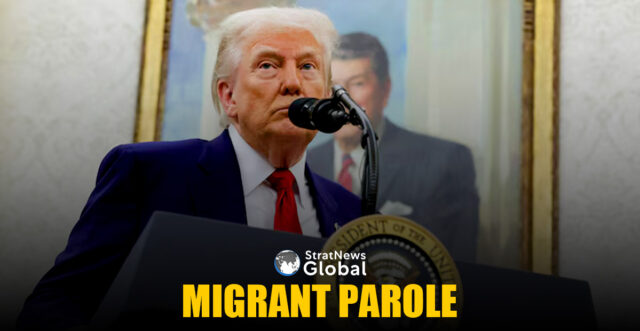A federal judge on Wednesday temporarily blocked the Trump administration from ending parole programs that legally admit migrants with US sponsors.
US District Judge Indira Talwani in Boston issued an order requiring agencies under the US Department of Homeland Security to resume the processing of applications from migrants covered by those parole programs pending the outcome of a class action lawsuit.
Talwani rejected the Trump administration’s claim that ending the programs was within the agencies’ broad discretion to direct immigration policy.
Federal law still requires agencies to follow a lengthy process for granting or denying parole and other immigration relief, wrote Talwani, an appointee of Democratic former President Barack Obama.
Trump Admin Moves Supreme Court
Talwani in April had blocked the Trump administration from revoking the temporary legal status of hundreds of thousands of Cubans, Haitians, Nicaraguans and Venezuelans in the United States. The administration has asked the US Supreme Court to pause that decision pending an appeal.
The Department of Homeland Security and lawyers for the plaintiffs did not immediately respond to requests for comment.
The decision came in a lawsuit challenging a pause on the processing of applications from Ukrainian, Afghan, Cuban, Haitian, Nicaraguan, and Venezuelan migrants either seeking to be granted entry through the parole process or who have already been granted that status and are seeking to stay.
Trump Policies Under Scrutiny
Talwani’s decision focused on policies the US Department of Homeland Security adopted after Trump on his first day back in office on January 20 signed an executive order directing it to end the Biden-era parole program.
In a memo that day, Acting Homeland Security Secretary Benjamine Huffman directed agencies under his purview to pause, modify or terminate any categorical parole programs, which he asserted were not authorized by law as parole could only be granted on a case-by-case basis.
DHS officials subsequently stopped processing new parole applications and in mid-February barred staff from considering requests from migrants from Ukraine and Latin America who had already been granted parole to pursue other forms of immigration status, such as asylum or temporary protected status.
(With inputs from Reuters)





